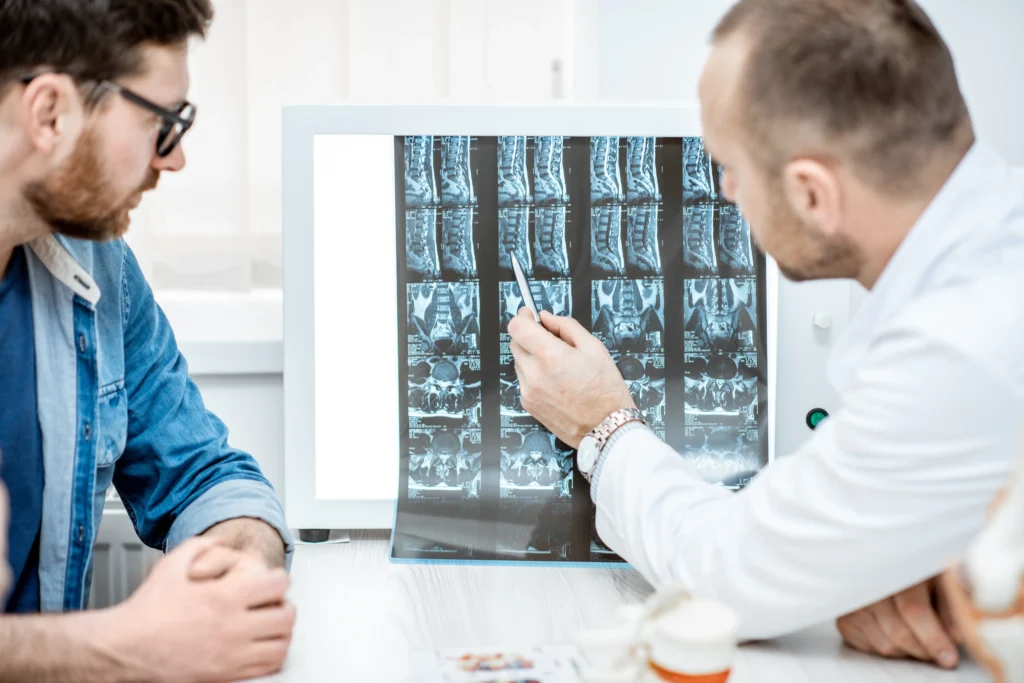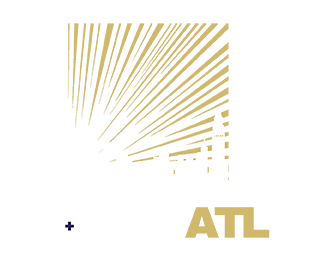Being involved in a car wreck can change a person's life in just a few…

A spinal cord injury is an extremely dangerous and potentially lifelong condition, often causing permanent damage. Even if you don’t lose complete feeling and control of your limbs, it is still likely to cause emotional, mental, and social ramifications.
Atlanta car accident attorney Nathan Fitzpatrick from the Fitzpatrick Firm is here to provide a comprehensive overview of exactly what a spinal injury is and what you need to know during the immediate aftermath of such an injury. He has served the Atlanta area, plus the entire state of Georgia, as a car accident attorney for 14 years. Also importantly, his law firm boasts a combined 52 years of legal experience.
In this article, he will tell you everything you need to know about spinal cord injuries, car accidents, and how to get compensation for your life-changing injury.
The Grave Reality Of Car Accidents
Did you know that there were more than 5.25 million automobile accidents in the U.S. in 2020 alone? Of these, 35% of all fatal accidents were caused by drunk drivers.
Even when an automobile accident does not lead to death, it still carries the risk of causing the victim to become paralyzed due to a spinal cord injury. In fact, people who develop a spinal cord injury after a car accident have a mere 0.7% chance of recovering from neurological complications by the time they’re released from the hospital.
Prevalence Of Spine Injuries In Car Accidents
Shockingly, about 1/3 of all spinal cord issues are caused by an automobile accident. Once this happens to you, you’ll be facing an expensive uphill battle that will probably last for the rest of your life.
For instance, let’s say that you suffer from high tetraplegia (full body) at the age of 25. You can expect to pay more than $5.1 million in medical bills and related expenses during the course of your life. Even if you only have to deal with some motor dysfunction, you could still be looking at more than $1.7 million just to take care of your injuries. That’s a tough pill to swallow, especially if you weren’t at fault for the accident.
Anatomy Of The Spine
24 essential small bones combine together to make up your spine. These 24 bones can mean the difference between having a normal life or being unable to stand up or even sit up properly.
Cervical, Thoracic, And Lumbar Spine: Basic Differences
Your spine is made up of five different areas: cervical, thoracic, lumbar, coccyx, and sacrum. Out of these, three areas are especially prone to injury, which can partially or fully paralyze you.
The cervical section supports your neck and contains seven small vertebrae (bones). In the thoracic section, you’ll have 12 vertebrae to support your midback. Finally, the lumbar spine, which supports your lower back, consists of five large vertebrae.
Why do these three specific areas lead to serious injuries? This is caused by the fact that the cervical, thoracic, and lumbar spine are the only areas of your spine that move independently. As such, they’re prone to developing a pinched nerve.
- Cervical – Shoulders, arms, and hands may be affected.
- Thoracic – Midback and front of your body may be affected.
- Lumbar – Lower extremities and buttocks may be affected.
Understanding The Spinal Cord And Its Functions
Your spinal cord is responsible for allowing you to sit, stand, and walk correctly. It works in conjunction with the peripheral and central nervous system to provide your brain with control of your body’s functions. This happens via three vital areas:
- Sensory Functions – Allows pain, pressure, temperature, and touch sensations.
- Motor Functions – Allows your brain to direct your body’s voluntary muscle movements.
- Autonomic Functions – Regulates your blood pressure, digestion, heart rate, body temperature, and urination.
Types Of Spinal Cord Injuries From Car Accidents
Although most people likely associate their spinal cord with partial or full paralysis, there are actually several different ailments from which you could suffer from, including:
Whiplash: Not Just A Minor Discomfort
Whiplash can be much more serious than people think. Of all the injuries you could develop, whiplash is kind of like the McDonald’s hot coffee of your spine. In other words, despite it having a really good case (and despite winning that case), most people try to laugh it off as if it’s not being that serious.
In reality, whiplash should technically be called a cervical sprain. This means that your neck ligaments have either been torn or stretched. As a soft tissue injury, it affects your tendons, muscles, and ligaments, but not your bones.
Herniated Discs: Causes And Implications
A herniated disc means that part or all of a disc is literally forced through a weak section of your spine. In an automobile accident, a herniated disc is caused by a blow to the back. It’s more commonly caused by aging (disc degeneration), although previous injuries to your back can flare up later in life, too.
Complications include:
- Sharp pain in the buttocks, hips, or leg.
- Pain that exists on only one side of your body.
- Pain in your shoulder blade or neck that worsens when you move the associated body part.
Sadly, a herniated disc can feel even worse anytime you:
- Cough, laugh, or sneeze.
- After sitting or standing.
- Bending backward.
- Walking more than 10 feet.
Spinal Cord Trauma: A Grave Concern
Damage to your spinal cord can disrupt the signals that it usually sends to your brain. This traumatic spinal injury can be caused by:
- Motor vehicle collisions
- Assault
- Diving
- Gunshot wounds
- Falls
- Industrial accidents
- Sports injuries
If your spinal cord has been injured, you’ll most likely develop partial or full paralysis that can be temporary or permanent.
Fractures: Compression And Burst
A burst spinal fracture means that one or more vertebrae in your spine have become broken in multiple directions. Approximately 14% of spinal cord issues come from a burst spinal fracture. Its most typical cause is the compression of a bone that comes from significant trauma.
If you suffer from a burst fracture, you’ll need to seek immediate medical treatment. Bone fragments can become displaced, which will lead to compromised function and pressure on your nerves.
Dislocations: Severity And Repercussions
A ruptured or over-stretched ligament is known as a spinal dislocation. It can lead to a temporary or permanent change in movement, body functions, sensation, and strength, and it takes place beneath the injury site.
The primary treatment for a dislocated spinal cord is a process known as reduction. This involves surgery and/or traction. Additionally, some people will need spinal fusion surgery.

Recognizing Spinal Cord Injury Symptoms
A spinal cord injury can have a wide list of symptoms. It’s difficult for some people to even discern they have one at first. This doesn’t mean that you don’t need medical assistance, however.
Immediate Vs. Delayed Symptoms
Spinal injury symptoms can set in immediately but can also be delayed. A delay may be caused by bleeding and/or swelling in—or around—the spinal cord. Regardless of whether you feel your injury right away or not, the basic symptoms are the same.
- Inability to walk or move extremities.
- Numbness, pain, and/or a burning sensation.
- Inability to feel cold, heat, and/or pressure.
- Loss of bowel or bladder control.
- Difficulty breathing.
- Muscle spasms.
It's always best to see a healthcare professional after motor vehicle accidents or other times you've been injured. You can have severe damage, even if the pain is not that severe or nonexistent.
Numbness And Tingling: Telltale Signs
Anytime you suffer from regular bouts of numbness and tingling, it’s wise to visit your doctor. If you feel numbness and/or tingling in both sides of your body, it’s a good bet that you’re suffering spinal cord damage.
Anytime you experience those symptoms in the following areas, seek medical treatment immediately:
- Thoracic – Legs and trunk are affected.
- Lumbosacral – Legs and hips are affected.
- Cervical – Leg and arms are affected.
Muscle Weakness And Coordination Issues
Muscle weakness is a common complaint when injury occurs. However, true muscle weakness—such as that which is caused by a spinal cord injury—is less common. The following symptoms are all associated with muscle weakness and coordination issues:
- Twitching.
- Pain.
- Muscle spasms.
- Paralysis.
- Prickling sensation.
- Loss of muscle coordination.
- Burning feeling.
- Falling frequently.
Furthermore, a lack of muscle coordination can lead to:
- Problems with gait.
- Loss of balance.
- Difficulty with daily tasks, including writing with a pen and grooming.
Pain: Acute And Chronic Variations
If the pain you suffer after a car accident lasts for 12 or fewer weeks, it’s classified as acute. If your pain lasts longer than 12 weeks, it’s classified as chronic.
People who have suffered a spinal cord injury have a 70% chance of developing chronic pain. Even worse, 1/3 of those patients will have pain that’s so intense it impacts their functioning, mood, and overall quality of life.
As you can see, if your spinal cord has been injured in an automobile accident, you’re most likely looking at a lifetime of pain and other symptoms.
Respiratory And Bladder Concerns
An injury to the cervical area often leads to issues with either paralysis or respiratory muscle paresis.
A spinal cord injury can lead to incontinence. This is caused by the nerves in your spinal column becoming disrupted. These nerves control your body’s bowel and bladder functions.
Can you imagine? There you were, going about your daily activities, and then you had a severe car accident. As a result of the spinal injury resulting from the car accident, you can no longer control your bladder and bowel. This would represent a significant decline in your quality of life. Yet you didn’t even do anything to cause it!
Spinal Stenosis: The Narrowing Nightmare
Spinal stenosis is where spaces in the spinal canal narrows, putting pressure on the nerves. Often seen in the neck and lower back, this narrowing can lead to pain, numbness, and muscle weakness.
While some may not show symptoms, others face significant discomfort. Aside from wear-and-tear changes like osteoarthritis, a traumatic event like a severe car accident can also lead to new cases of spinal stenosis. Depending on the severity, treatment options vary from corticosteroid injections to physical therapy to surgery.
Diagnosing Spinal Injuries Post-Accident
Your doctor will need to diagnose any spinal column injuries after your accident. This is done by examining your body and seeing how you react to the following three tests:
- Motor – Are your muscles able to tell your body parts how to move properly?
- Sensory – Are you able to feel different sensations such as pain, pressure, heat, cold, etc.?
- Reflex – Do you still have involuntary, instinctive reactions to protect yourself?
All of the above factors will be checked during a neurological exam that will be performed three to four days after your accident. The delay is given to allow any swelling to subside.
Treatment Options
A spinal cord injury cannot be reversed. It can be treated, though, through one of the following:
- Traction
- Surgery
- Corticosteroid injections
- Experimental treatments
- Physical therapy
Long-Term Implications Of Spine Injuries
Because a spinal cord injury can’t be reversed, most patients will deal with long-term implications, including partial or complete paralysis, muscle spasticity, osteoporosis, syringomyelia, infections, and depression. These will likely impair quality of life from taking pleasure in daily activities to contributing to the workforce or society.
Mobility Challenges And Physical Limitations
If you’re unlucky enough to face partial or complete paralysis, you’ll definitely be dealing with physical limitations and mobility challenges. Even if you don’t become paralyzed, however, you may have to deal with uncontrollable spasms (muscle spasticity), bones that fracture easily (osteoporosis), and weakness/numbness (syringomyelia).
Mental Health Considerations: Coping With Traumatic Spinal Injury
Depression is a big issue for people who are dealing with a spinal cord injury. In fact, it’s quite common for people to suffer from depression for anywhere from weeks to years after their accident. You may feel fatigued, helpless, and uninterested in things that once brought you joy.
Legal Considerations After A Car Accident
If someone hit your vehicle and caused you to suffer from a spinal cord injury, you’ll definitely want to file a lawsuit. After all, your expected lifetime associated expenses will almost certainly pass $1 million.
Seeking Compensation: When And Why
Seeking compensation for your injuries and pain is important. Make sure that you have an attorney file a lawsuit within two years of the accident date. However, you should also ensure that your lawyer waits until after you’ve been checked out again a few days after the accident as more injuries may make themselves known.
Importance Of Documentation And Evidence
Save every piece of documentation proving your injuries, as they’ll all come in handy during your lawsuit. Additionally, if there were any witnesses to the accident, ensure your attorney reaches out to them right away. These things can make or break your case, so be sure you keep them well organized.
Working With An Attorney: Expert Guidance
Remember, your attorney is working for you. As such, make sure you get their best by giving them everything you can about your case.
Always do the following in a timely manner:
- Pass on any pertinent information.
- Get any requested information.
- Do what they ask of you.
- Be honest at all times.
- Respond to them quickly.
- Let your attorney know what your schedule looks like.
- Ask for explanations if you don’t understand them.
Frequently Asked Questions (FAQs)
How Soon After An Accident Should I See A Doctor?
As soon as possible. You may have to go back but get checked out right away.
Can Spinal Injuries Manifest Days After The Accident?
Yes, a spinal injury can definitely do that. All the more reason to go back to your doctor after a few days.
What Are The Chances Of Complete Recovery From A Severe Spine Injury?
It’s possible but unlikely. The more severe your injury is, the less likely you are to completely recover. Even if you do, it will take at least 18 months.
How Can I Strengthen My Spine After An Injury?
You can—and should—exercise as soon as you’re able to. The following will all help strengthen your spine:
- Stretching
- Strength training
- Aerobic exercise
Even if you’re in a wheelchair, you can still participate in activities like wheelchair basketball.
Will Insurance Cover All Medical Costs Related To Spine Injuries From Car Accidents?
Car insurance will typically only pay out once, so your settlement may be lacking unless you’ve guessed exactly how much money you need. Once your health insurance takes over, some procedures may not be covered. Additionally, you’ll have to cover your deductible for both policies.
What Precautions Should I Take After a Car Accident to Prevent Further Spinal Damage?
After a car accident, it's crucial not to move suddenly or strain your spine. Wait for medical professionals if you suspect any spinal injuries. Always prioritize safety and health over vehicle concerns.
Is It Common to Feel Fine Immediately After a Car Accident But Experience Spine Pain Later?
It's not unusual to feel okay right after a car accident due to the adrenaline rush. However, spinal issues might manifest a few days later. Always seek medical attention post-accident.
Can Minor Car Accidents Also Lead to Spinal Injuries?
Absolutely. Even if the car accident seems minor, the jolt can cause spinal injuries. Don't underestimate the potential for harm based on the severity of your car accident.
How Do I Know If My Spinal Pain After a Car Accident Is Serious?
Persistent pain, numbness, or tingling after a car accident could indicate a spinal injury. If these symptoms arise post-accident, consult a doctor immediately.
Are There Long-Term Effects on the Spine After a Car Accident?
Some might experience chronic pain or other lasting issues after a car accident that require medical treatment. Regular medical check-ups are essential for monitoring any potential long-term effects.
Facing Spinal Cord Injuries After An Atlanta Auto Accident? Contact the Fitzpatrick Firm For A Free Consultation
Did someone hit your vehicle and cause you to develop a spinal cord injury? Don’t go down this complicated road alone. Georgia residents can contact The Fitzpatrick Firm for assistance after their car accident. We offer a free consultation, so there’s nothing standing in your way! Contact us today by calling (678) 607-5550 or filling out the form below.


